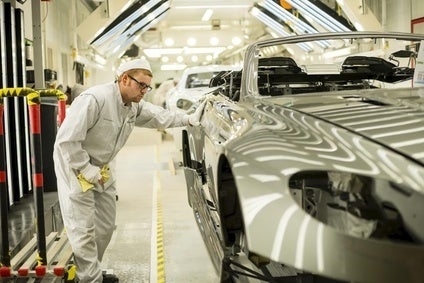Aston Martin sales went into reverse in the first six months of 2024 but the luxury carmaker reportedly said it expected recovery in the second half as it completed an update of its model line.
The Guardian reported the number of cars sold to dealers fell by a third to 2,000, while first half losses rose 52% to GBP216.7m.
The famed sportscar maker nearly went bust for an eighth time in 2020 but was saved by Lawrence Stroll, the billionaire fashion mogul, the paper noted.
Since then, Stroll has struggled to turn the company around, first by trying to restore an air of exclusivity to the brand by reducing the number of cars held by dealers and sponsoring a Formula One race team, and then by releasing new models.
It launched a new Vantage sports car and the DBX 707, an update of the sports utility vehicle that has played a significant role in increased sales.
Alongside DB12 and Vanquish sports car models, it the carmaker has a new lineup, with updated infotainment systems that addressed some criticism of previous models.
According to the Guardian, Stroll said the launch of the sports cars and the SUV was a “pivotal moment” for the company after years of trying to turn it around.
The former Bentley boss Adrian Hallmark would take over as chief executive under Stroll, who is chair, in September.
Stroll said Aston Martin would start generating cash later this year, as the benefits of heavy investment finally bore fruit. “We have a big third and fourth quarter coming up,” he added.
The Guardian added Aston Martin would still have big investments ahead, most notably in the shift to electric cars. None of the models it had made so far were electric, although it planned to release a plug-in hybrid version Valhalla super car in 2026, a year later than initially planned.
Aston Martin chief financial officer, Doug Lafferty, told the Guardian the company hoped to benefit from allowances for smaller manufacturers to continue to sell combustion engine cars up to 2035, five years after the Labour government's proposed 2030 deadline.
He said: “The current legislation allows for a derogation for small volume manufacturers and we don’t see any deviation from that.”









